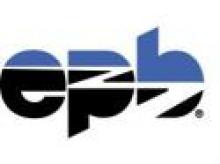Chattanooga's EPB Working with Cities, Co-ops to Improve Connectivity
In the Internet access industry, large corporations typically fight to maintain their positions as monopolies. Even if they have no intention of serving certain communities, big cable and telecom companies work to prevent others from gaining a foothold, fearful that they may someday lose subscribers. On the other hand, municipalities that operate publicly owned networks often encourage, mentor, and collaborate with neighboring communities to get people connected. Now, EPB Fiber Optics in Chattanooga is partnering with municipalities and cooperatives interested in offering Internet access.
Working Past Restrictions
Tennessee still prevents municipal power utilities from offering telecommunications services beyond their electric service areas, but state law won’t deter EPB Fiber Optics from doing what they can. Recently, EPB Vice President of Marketing J. Ed Marsten spoke with Telecompetitor. “We’re partnering with some other municipal and cooperative providers to help them get into the business,” Marston said. “We’ve seen a ton of interest.”
EPB Fiber Optics is offering a range of services to potential utility partners as a way to bring better connectivity to more Tennesseans. In addition to consulting services, the utility may be able to provide transport to an Internet point of presence (POP) and offers tech support. When municipalities or cooperatives work with EPB and use Chattanooga’s staff, they can cut operating costs and reduce the time it takes to begin offering services.
In Massachusetts, Westfield Gas+Electric (WG+E) offers similar services to the nearby rural towns that lack high-quality Internet access. Westfield’s Whip City Fiber, however, is not precluded from offering Internet access via local public infrastructure. Like EPB, WG+E also offers consulting services, if municipalities choose to operate their own networks.
Publicly Minded Moves…So Many



